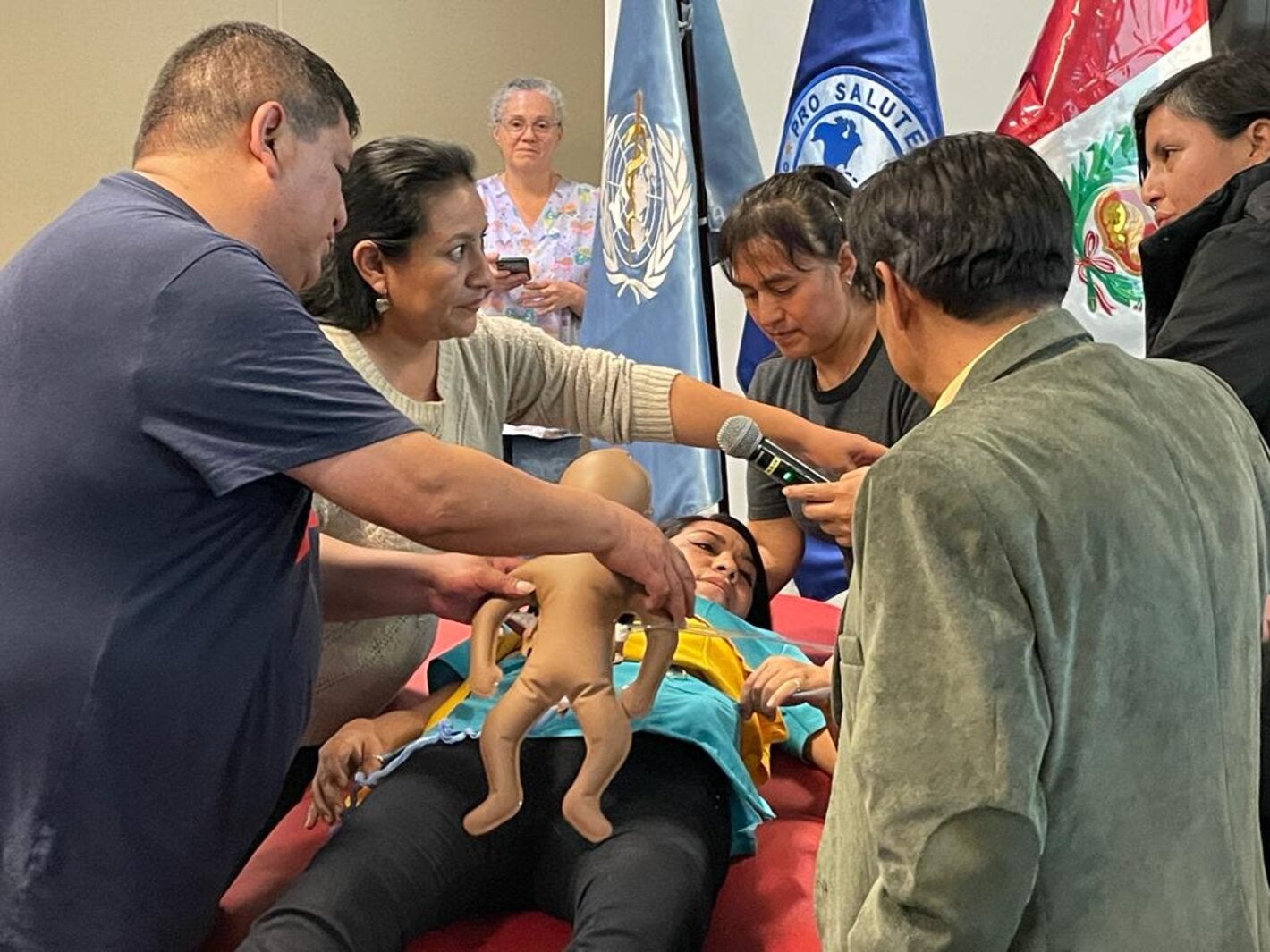
August 28, 2023.-
Mortality during the first 28 days of life, particularly in the first week, accounts for an average proportion of more than 60% of infant deaths. Moreover, the consequences of adverse events affecting infants often affect health and quality of life well beyond the first month, including disability or even death. However, external determinants associated with these events can be identified and acted upon to achieve the elimination of preventable neonatal deaths.
As part of the technical cooperation provided by the Pan American Health Organization (PAHO) to the Peruvian Ministry of Health, a mission of the Latin American Centre for Perinatology, Women's Health and Reproductive Health (CLP/WR) took place from 14 to 17 August to facilitate a workshop for health professionals, as well as to hold coordination meetings with country counterparts.
Human talent trained for perinatal care
Human resources competencies are essential to prevent and reduce the impact of adverse events that affect the health of children in the early stages of life, such as perinatal asphyxia, neonatal infections or neonatal sepsis, which represent one of the leading causes of neonatal death in the Americas region. The moments immediately after birth, the first minute, the first hour and the first day are crucial for newborns and their families. Adequate neonatal resuscitation and other early interventions are essential for long-term survival and well-being, including attachment, thermal care and protection from infection. These interventions are even more critical for premature, small or critically ill newborns.
In this regard, PAHO has been implementing actions aimed at eliminating preventable deaths and promoting high quality care. The workshop "Promotion of prioritised neonatal health interventions for every baby and for small and sick babies" had as its main objective to strengthen the knowledge and skills of health personnel in the provision of essential care to newborns, as well as to improve perinatal health surveillance. It was aimed at neonatologists and nurses from regions prioritised by the Ministry of Health, and was facilitated by Dr. Pablo Durán, regional perinatal health advisor of CLP/WR. It should be noted that this activity was supported by Global Affairs Canada, in the framework of the "Improved Health of Women and Adolescent Girls in Situations of Vulnerability" Project.
The workshops included strategies with neonatal simulators, addressing topics such as skin-to-skin contact in the first hour of life, breastfeeding counselling and care in the first 90 minutes of life, as well as newborn classification and training mothers and their families to identify danger signs and seek medical attention in a timely manner.
It is hoped to continue expanding the training processes to new professionals in different regions of the country.
PAHO/WHO coordination and government counterparts in Peru
In addition to the workshop, in order to strengthen technical efforts to prevent foetal and neonatal deaths, a meeting was held on 17 August with the national neonatal health committee and authorities from the Ministry of Health to socialise progress in foetal and neonatal surveillance. In this space, Dr. Durán presented the perinatal surveillance strategies from the CLP/WR perspective, which will contribute with evidence and in the updating of standards, guidelines and clinical management of newborns.
A meeting was also held with representatives of the intensive care units of the Junín and Loreto hospitals and the National Maternal and Perinatal Institute in Lima to review the results of the application of a survey on the quality of care in neonatal sepsis, which contains a series of standardised indicators to monitor and evaluate the quality of care. These indicators could contribute to improving surveillance systems and be useful in providing information to guide future infection prevention and control interventions, and thus contribute to reducing neonatal sepsis and mortality secondary to it.
PAHO/WHO reaffirms its commitment to support the country in its efforts to reduce perinatal mortality, and to ensure the well-being of all, leaving no one behind.




